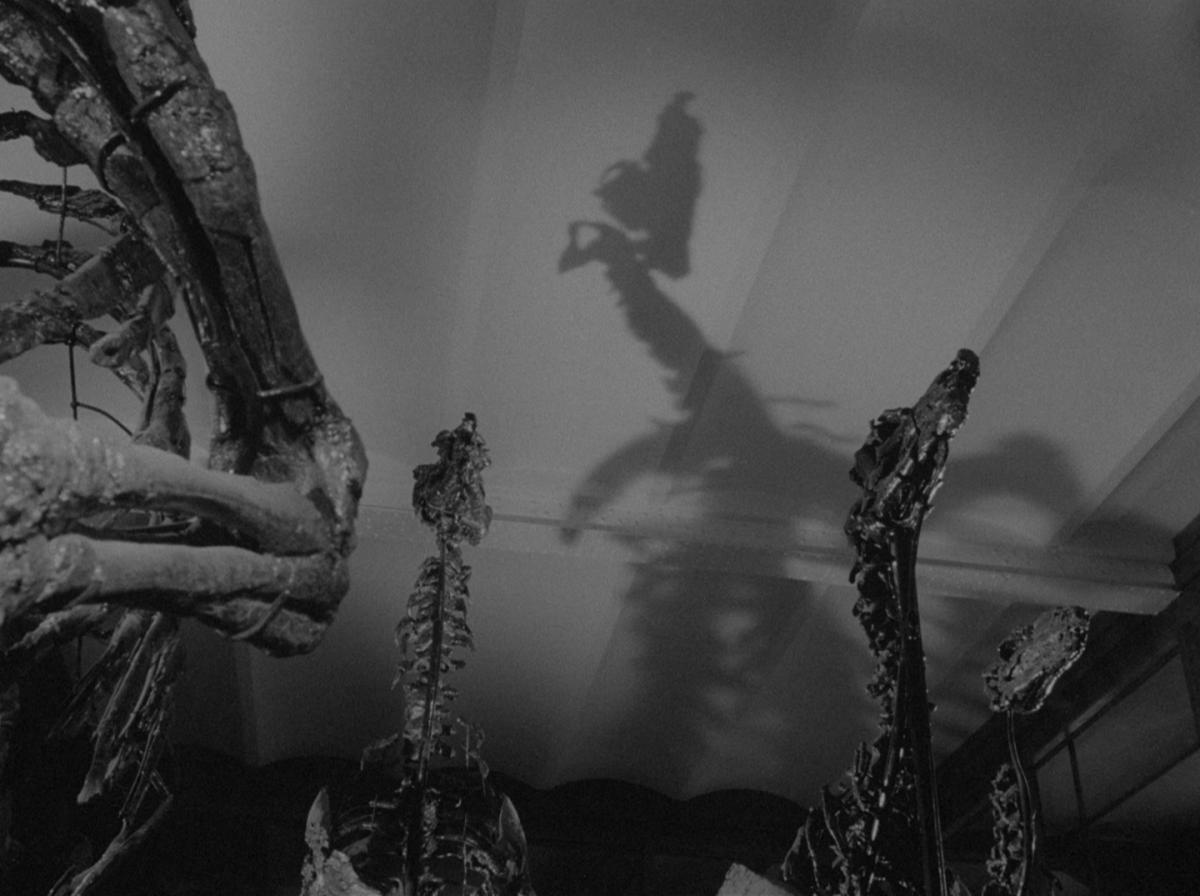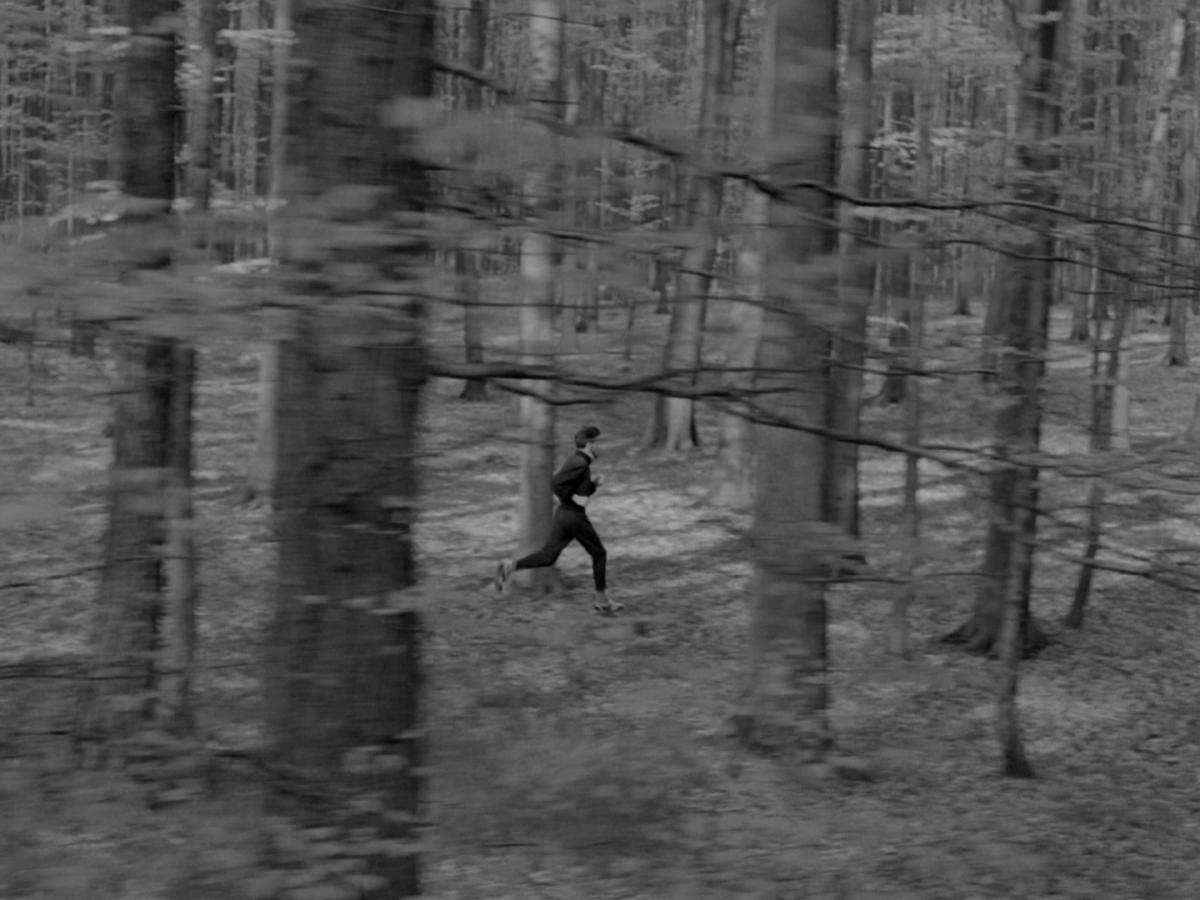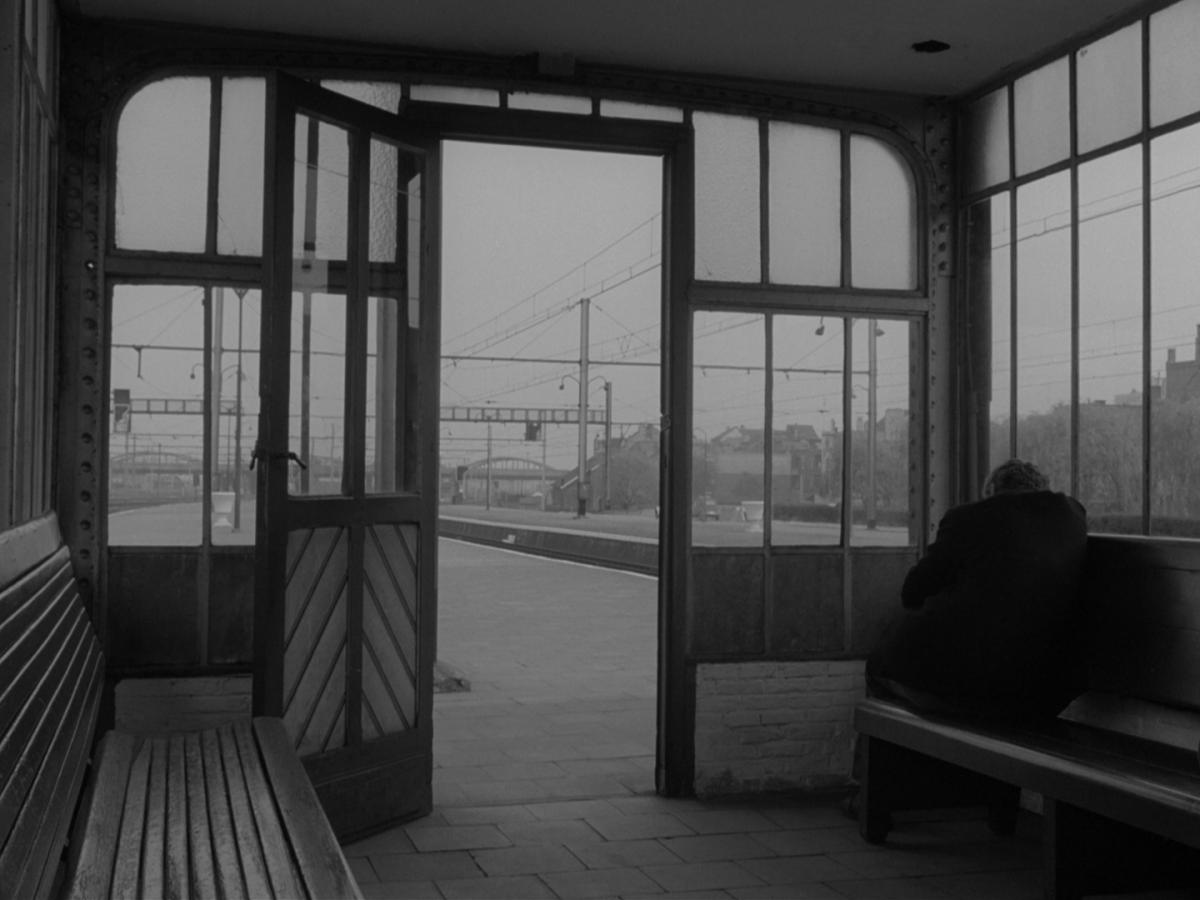A Conversation With Edmond Bernhard

Patrick Leboutte and Dominique Païni: You put an end to your activities as a filmmaker unexpectedly, in the early 1970s, at the very moment Belgian cinema was beginning to get organized, to open up new funding opportunities.
Edmond Bernhard: Yes...
It’s very Belgian, this kind of “suspended vocation”. Others have stopped just like you: Ernst Moerman, Marcel Mariën, Norbert Benoît, Paul Meyer. In your case, economic reasons don’t explain everything. It’s more complicated than that.
Indeed, there is this idea of a certain fear of continuity, a taste for discontinuity, a desire to not be on board a course, even if you like what you’re embarking on. It’s an anti-heritage, anti-continuity idea; I don’t know why, perhaps it’s psychosomatic. Maybe it’s resistance. My parents? I wanted to be a soldier. My father was German, as my name Bernhard indicates. I had to prepare for military school, then for war school; I would have made a fine officer, my mother said. And then everything went awry. My father died when I was eleven. I went astray: the soldier who doesn’t become a soldier, who plays the piano, who does things... such as painting. I started painting when I was nine, and I did Latin and Greek at boarding school. At fifteen or sixteen, I started writing... poems... Then life went on, the war came; I took up writing again, and gave up. But around that time, I had the idea of learning the history of philosophy. My mother and others told me: “You’ll have a degree.” A degree? Horrible! When you have a degree, you risk having to “capitalize” on it. It didn’t suit me at all. The notion of working and spending your spare time as a teacher – two months of holiday to write; you are busy making money half the time and write when you can – terrified me. To become something really bothered me; a little less now, but...
Yet, you made several films.
I entered cinema precisely because of the discontinuity. Lumières des hommes. I had read somewhere, in Valéry I think, that the celebration of Mass was the most beautiful script in the world. There’s so much background, so much historical, philosophical, religious and human content. And everything is already established. Plus, there are five hundred million potential spectators for such a film. The script is done, but the triviality of a Mass is quite vulgar. Even so, it makes you dream, especially a Mass at six in the morning when no one is there. The story is told again and again, by someone with their back to us and in Latin. The people who are there don’t understand anything; it’s a foreign language. Not having to write a single thing seemed unusual, extraordinary to me, who still had a writing problem. I’ve always been very interested in Asian religions (Hindu, Chinese, etc.), and I looked at the Mass from other theological and metaphysical points of view. But don’t ask me if I believe in God. I know nothing about it at all. My cameraman was Protestant and my assistant a communist. There were three of us. The lamps and projectors broke; I knew nothing about cinema. I had ordered the best celluloid from America, DuPont de Nemours. Then I spent months editing; I didn’t know how to glue it together. Besides, the glue didn’t hold – we were still using glue at the time. In the picturesque cellar where I worked, I was battling with a guy called Brel, something like that, Jacques Brel. A pain in the ass... He was in the next room and he was bawling out things on his guitar, words that made my hair fall out: “Et Satan mène le bal”, strum, strum, “et Satan mène le bal” [“And Satan leads the ball”]! A sympathetic guy with the face of a horse. One day, I told him: “Won’t you shut up? I’m in the process of editing a Mass!”
There’s something crazy about editing. The little I learned about film technique and the manipulation of forms comes from editing really. Because I had to edit everything myself; I couldn’t afford an editor – and I didn’t want one anyway. I was too – what word do they use nowadays? – “invested”. Funny word.
That’s the story of Lumière des hommes. The film was a modest success in Paris: it was mentioned in Le Figaro, there was a screening at the Cinémathèque française in the presence of Renoir and the son of Mauriac, who said to me: “My father must see this; it’s much better than what he did. But I’m sure that you don’t believe in God.” I was God, of course, since I had directed the film. “But there’s something else," Mauriac said, “there’s diabolism in this film.” I replied: “Do you conceive of God without the devil?”
When I saw the film, I thought of Francis Ponge talking about The Making of the Pré and the poetic factory, about ingredients and words that become material things. I saw a Mass made up of material gestures, medical manipulations, concrete things; a Mass that suddenly had a relationship with all that’s concrete.
It is an absolutely poetic film, not because of its religious imagination, but because of what we see people doing on the screen.
I think there was a touch of black magic in this film.
How was Lumière des hommes financed?
By me. I had a car, I sold it and kept the money. At first, I didn’t pay anyone, then I promised to pay them.
Why did you disappear just as they were starting to finance films in Belgium?
That’s a good question. I kind of vanished, evaporated. My teaching job played a role: when talking a lot about cinema, you don’t make films. Yet I still tried to make a film, a feature film that was to be shot in London, partly in English, with a very famous English actor whose name I’ve forgotten. Unfortunately, it was very expensive. I wasn’t able to raise the funds. I think I needed 15 million at the time. I spoke to the reading committee of the film fund and they said, “But do you have a production structure?” I replied that I didn’t need a structure: “I have a chequing account; you can send me the money.” “No, you still need a structure!” A structure, well I never! I went to school, so I have a good structure. A “social” structure. Dang. How do you do it? I wonder how to get a structure. How do you find a lawyer? Oh la la la la la. You have to produce papers, an association whether or not for profit. I don’t know what my position is – as a structure. They wouldn’t give me the money, and I couldn’t understand why. They were more or less praising me to the sky, and they didn’t want to give me money. They wanted to give it to a “structure”, which would be me without being me.
But most of all, this reading committee swore by the script. There was a lady there who demanded a script from me no matter what. I always film without a script. One day, some guy said to me: “Would you be able to make a commercial film?” I was beginning to know cinema. There was an ad for Le château de Belœil on his desk. He said: “I’ll give you this much money and you make the film.” “All fine,” I replied, “We’ll film and then I’ll fiddle with the montage. But of course, I won’t make a script.” It made sense. I dabbled in jazz in my time: you can’t write a score and improvise at the same time. So, to submit a script to the committee...
Submitting a script for Waterloo would have been like going through a reading committee at the Vatican to make Lumière des hommes. I didn’t make a propaganda film for the Christian Church. Yes, I’m in an almost ridiculously heroic position like that, because it’s bogus heroism.

And Dimanche?
Well, here, I have an anecdote or two to share. I was summoned to the National Educational Cinema and the director told me: “We would like you to make a film on the problem of leisure.” I doubled up with laughter. Leisure, what is that? The guy with the cap who doesn’t know what to do on Sundays? And then this “problem of leisure”! The film was to be produced by the Western Economic Union. I doubled up a second time. I didn’t know anything about leisure. Neither did I know about holidays. We are on holiday all the time. Unless you become a lawyer, but that’s asking for it, damn. I had to make this film. Where to find the material? So I thought I could make a film about vacuity, emptiness, emptiness in itself. Are we the dream of a butterfly, or is the butterfly dreaming of you? What are we doing here? What are we? Crabs, humans at leisure or work? So I said: “Could I make a film about emptiness?” “Yes, if you’d like, that’s the bottom line. There’s a feeling... yes, yes, okay.” So I wrote a script, thirty-five pages in which I described scenes of leisure. But I added a little note at the beginning which said: “Naturally, the film will go beyond and fall short of all that follows; it will depend on the montage.” So I made Dimanche. When I had finished – to my surprise – the State, the company and their representative said: “This is excellent.” I had apparently addressed “the problem of leisure”. Obviously, this film is partly the result of some of the research I had done for Waterloo. It was an attempt at a slightly different film language... different from the usual film language, trailing behind theatre and literature. I made another film, Échecs, which never came out, and which tried to go even further, to see how far it could go. It’s quite exciting, really, cinema.
You ask yourself artists’ questions.
I’ve capitalized on my ignorance, in a way.
In Waterloo and Échecs, it’s the rhythm that gives the impression of going back and forth between reality and painting.
That is due to the editing. You obviously can’t do it beforehand, at the script stage. It’s the equivalent of a script written after the fact, if you like. The musical system is the dumbest system in the world, as Musil says. Music is the dumbest thing in the world, as it repeats all the time. It repeats, albeit with differences. It repeats in a lower key, for example. It’s the same thing further away. It’s still the same, but then... further away. It’s a subtle thing. Can we do that in cinema? I tried to do it. I couldn’t do anything else: I had never written a script, never made films, I didn’t know what a lens was and... in retrospect, I probably benefited from... my ignorance.
When I watch your films, I have the feeling that you’re a man of rites, a man who loves rites. I’m thinking of the chess games, the Mass, the visit to the museum.
Ah yes, I am fascinated by ceremonies, rites, codes...
Because it’s codified time?
I don’t know ... it’s a textbook example. Humans are fascinated with rites. Everything is ritual. Suppose you’re going to play at a concert, going to play Brahms; Brahms, a concert, becomes a Mass too, well, a rite rather. We’re there, we gather, we listen. In a conference there is rite... we don’t laugh [rit] a lot, but we do laugh [rit]... We are rite. Not only are we rite, but we ritualize everything. And beyond ritualization, there are machines that ritualize anything in order to understand it. Another thing... I discovered an advantage of cinema: it allows you to be ambiguous. You film something, you give meaning to something by way of the tempo, the framing, and everything blows up in an unpredictable way, especially because it depends on what comes before and what comes after: cinema really is quite an interesting instrument of ambiguity.
I find in you the “mental” side of Valéry. There’s this joy that comes from thinking that you think, like Monsieur Teste.
Mirrors! The mind is always overwhelmed. Why not practise it? Because you’re afraid of being an intellectual? Why not just go as far as possible?
Exactly, why not go as far as possible?
I’m a pretty big chess lover, because it drives you mad. There are a hundred and twenty thousand books of theory. To think that people consider it a game! Look, you see people pushing pawns without them realizing it’s codified. Everybody is caught up in it. You meet a guy who wants to kill himself, and if you offer him a game of chess, he’s captivated, wondering where to put his knight... It’s the fascination of the ...
Mind.

This text originally appeared in Guy Jungblut, Patrick Leboutte et Dominique Païni, dir., Une encyclopédie des cinémas de Belgique (Paris: Musée d’Art moderne de la Ville de Paris - Yellow Now, 1990).
With thanks to Patrick Leboutte and Guy Jungblut.
This text is published in the context of Seuls: Short Work 1’, tonight at 20:30 on Avila. You can find more information on the event here.

